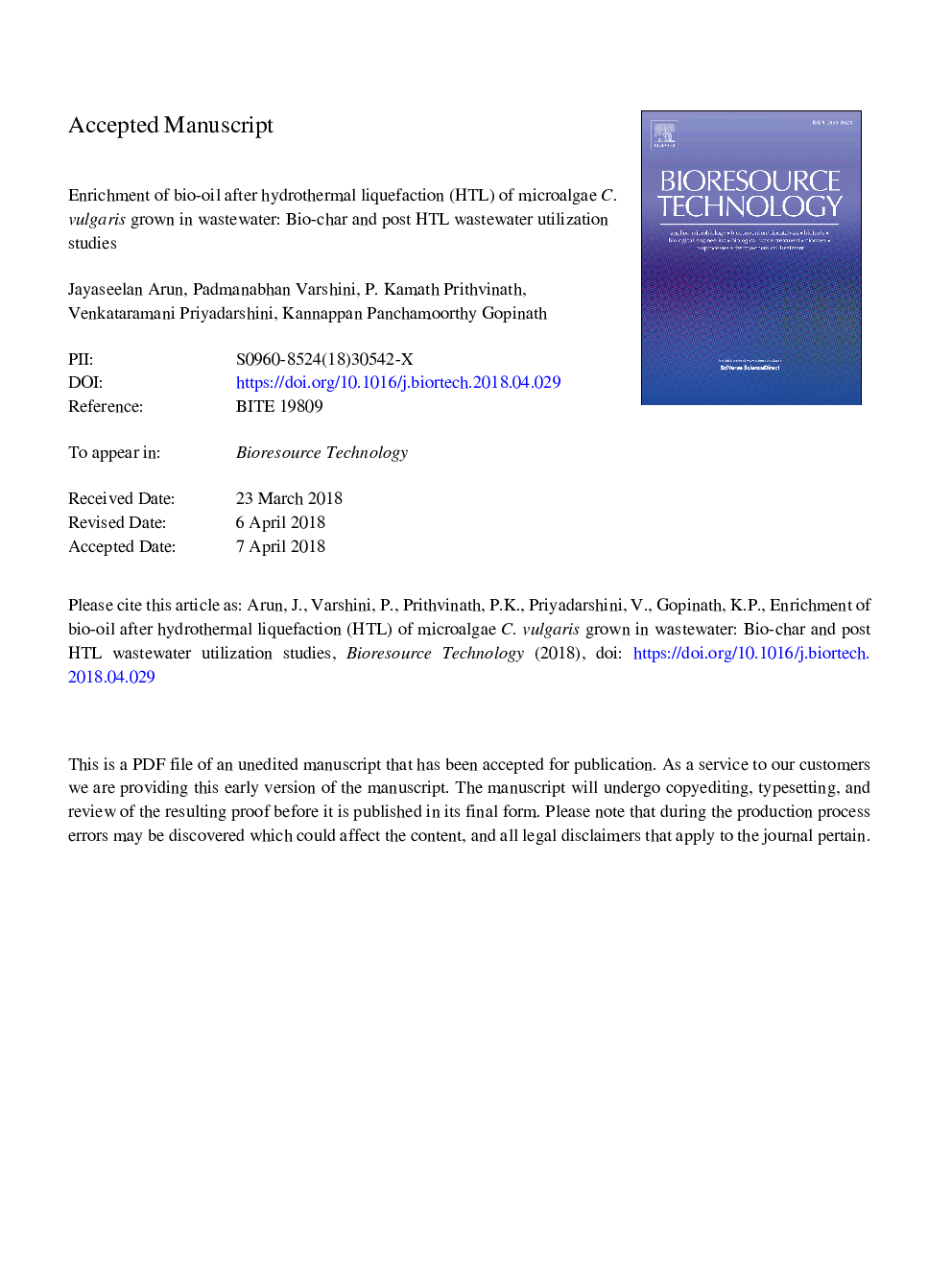| Article ID | Journal | Published Year | Pages | File Type |
|---|---|---|---|---|
| 7067083 | Bioresource Technology | 2018 | 29 Pages |
Abstract
In this study, bio-oil was produced through hydrothermal liquefaction (HTL) of C. vulgaris biomass cultivated in wastewater and was enriched into transportation fuels. Bio-oil yield was 29.37% wt at 300â¯Â°C, 60â¯min, at 15â¯g/200â¯mL biomass loading rate with 3% wt nano ZnO catalyst loading. Applying catalyst reduced oxygen and nitrogen content in bio-oil and increased its calorific value (19.6â¯Â±â¯0.8â¯MJ/Kg). Bio-oil was enriched through liquid-liquid extraction (LLE) and higher yield was obtained at 30â¯Â°C for dichloromethane solvent (18.2% wt). Compounds of enriched oil were within the petro-diesel range (C8-C21). Bio-char after HTL process was activated and used as adsorbent in wastewater treatment process to remove organic pollutants (COD, NO3, NH3 and PO4). Treated wastewater can be supplied as growth medium for microalgae cultivation in further experiments. Nearly 3-4 times the nanocatalyst can be reused in the HTL process.
Related Topics
Physical Sciences and Engineering
Chemical Engineering
Process Chemistry and Technology
Authors
Jayaseelan Arun, Padmanabhan Varshini, P. Kamath Prithvinath, Venkataramani Priyadarshini, Kannappan Panchamoorthy Gopinath,
